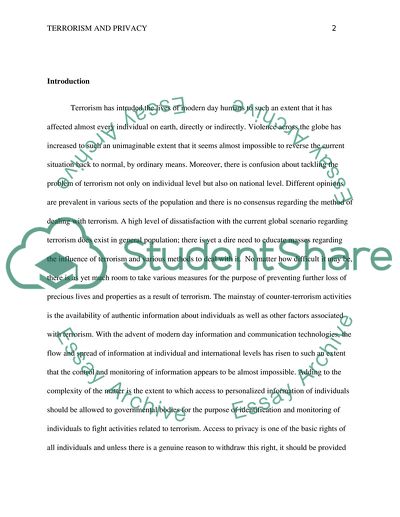Cite this document
(The Extent to Which Individuals Should Give Up Privacy Research Paper, n.d.)
The Extent to Which Individuals Should Give Up Privacy Research Paper. Retrieved from https://studentshare.org/law/1741423-the-extent-to-which-individuals-should-give-up-privacy-so-the-government-can-find-potential-terrorists
The Extent to Which Individuals Should Give Up Privacy Research Paper. Retrieved from https://studentshare.org/law/1741423-the-extent-to-which-individuals-should-give-up-privacy-so-the-government-can-find-potential-terrorists
(The Extent to Which Individuals Should Give Up Privacy Research Paper)
The Extent to Which Individuals Should Give Up Privacy Research Paper. https://studentshare.org/law/1741423-the-extent-to-which-individuals-should-give-up-privacy-so-the-government-can-find-potential-terrorists.
The Extent to Which Individuals Should Give Up Privacy Research Paper. https://studentshare.org/law/1741423-the-extent-to-which-individuals-should-give-up-privacy-so-the-government-can-find-potential-terrorists.
“The Extent to Which Individuals Should Give Up Privacy Research Paper”, n.d. https://studentshare.org/law/1741423-the-extent-to-which-individuals-should-give-up-privacy-so-the-government-can-find-potential-terrorists.


